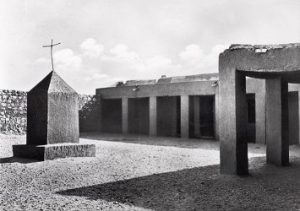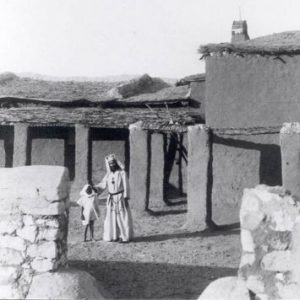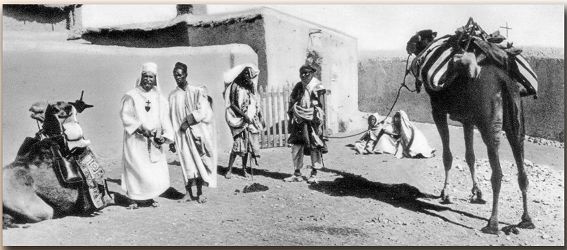“Let us go back to the Gospel, otherwise Christ will not be with us”
Charles de FOUCAULD
The future of the Church is the Desert:
 How, if not, can he point to today’s world the path that leads, from the slavery and dependencies that afflict him, to the joyful freedom of the children of God?
How, if not, can he point to today’s world the path that leads, from the slavery and dependencies that afflict him, to the joyful freedom of the children of God?
The future of the Church is Nazareth:
The prophetic force (that is, convincing) of its word in the world depends on its incarnation in the needs and struggles of the poor and marginalized of each society.
The future of the Church is the Universal Fraternity:
Within it, no one can feel excluded or marginalized; all in embrace, above rites and beliefs, beyond the various ways of conceiving human existence and seeking happiness.
The future of the Church is Jesus, Unique Model:
 He who has come not to be served but to serve, the path of Full Humanity in his meek and humble heart; revealing with his Life and with his Death of the Face of a God, Father and Mother, madly in love with every human creature.
He who has come not to be served but to serve, the path of Full Humanity in his meek and humble heart; revealing with his Life and with his Death of the Face of a God, Father and Mother, madly in love with every human creature.
The future of the Church is to Shout the Gospel with the Life:
Life that infects the joy of feeling already saved by God. Life that finds all its meaning in the silence of the most selfless service. Life offered in Thanksgiving and Communion to all thirsting for Life.
The future of the Church is the Last Place:
Because he knows, with the wisdom of the Spirit, that the princes and powerful of this world always oppress; and he knows that the first places in the Banquet of the Kingdom are reserved to those who were accepted, while still doing what they had to do, useless servants and without advantage.
The future of the Church is the Absolute of God:
 It is convenient for Him to grow and She to decrease. Because only God saves – and God only saves! -, the only one capable of removing Abraham’s children from the stones, and also unique in satisfying the deepest aspirations of the human heart.
It is convenient for Him to grow and She to decrease. Because only God saves – and God only saves! -, the only one capable of removing Abraham’s children from the stones, and also unique in satisfying the deepest aspirations of the human heart.
The future of the Church is the Adoration of the Eternal:
The Greatest God than all the institutions and ideas that praise and defend his Name. Before Whom there is no more than the silence of the soul in love, surrendered to the astonishment of such immense Love.
The future of the Church is the abandonment in God:
Nothing seeks for itself in the form of honors or privileges; he accepts the misunderstanding, persecution and failure that might come to him to remain faithful to the Gospel, following his Master with the Cross; and he works in the most free of charge, knowing that his mission in the world does not depend on the effectiveness of the temporary means.
The future of the Church is the Evangelical Simplicity:
 Let’s go back to the Gospel! Simplicity of Hierarchy. Simplicity of Moral. Simplicity in the liturgical expressions- Simplicity, above all, in the exposition of the Revealed Truth, transmitted to us by the Diaphony of the Word made Flesh.
Let’s go back to the Gospel! Simplicity of Hierarchy. Simplicity of Moral. Simplicity in the liturgical expressions- Simplicity, above all, in the exposition of the Revealed Truth, transmitted to us by the Diaphony of the Word made Flesh.
The Church of the Future will be a Church of the Risen:
Bold and free women and men, passionate lovers of life and risky defenders of Dignity and Human Rights; Blessed in the Poverty of their solidarity spirit; willing to give their lives, in the day to day of their responsibilities, like the grain of wheat that is not afraid to die to bear much fruit for the common good …
Or it won’t be at all!
PDF: The prophecy of Charles de FOUCAULD. Antonio LÓPEZ BAEZA, Eng



